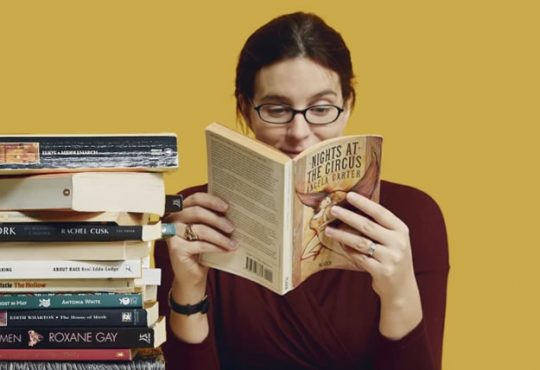Question:
What was it like as new authors in the publishing world?
Answer:
As free-lance writers of informative articles, we had no prior experience with book publishers. We did a lot of research and were aware of some basic contract and publishing procedures, yet there were many things we were not prepared for. For instance, there was the book cover design to conceive of – which our good friend Brian McAndrew created. The back cover text had to be developed, an author’s bio written, photos to have taken and lists of nearly 2 hundred contacts to sort out. The marketing research took weeks to do, but it resulted in a 12-page plan to ease our way.
Then there were formal things like dealing with the Library of Congress and Copyrighting. For instance, copies of the book had to be sent to the Library of Congress at our expense. There are rules to be aware of as well. The rights for free use (using quotes from other people) is so gray that we opted out of including this kind of text. Unfortunately, that meant more editing. We were disappointed because there were some very good quotes that would have added a great deal to the book.
Question:
What were some publishing experiences or unexpected turn of events?
Answer:
While Lillian was browsing the Internet looking up information on other publishers, she came upon Publish America’s website. It inspired her to send a query in on the spot. Within 3-days we received a request for a sample manuscript. Now, these publishers only accept 20% of the thousands of queries that cross their desks, so we were excited to have such a good response in a very short time.
Unfortunately, we were also relocating our home from one part of town to another, finishing a garden year and working as well. Time was short and stress was high. We got that sample manuscript off in a timely fashion, however, and we received an acceptance within a few days. The heady sensation of signing the 7-year contract flew by us in a blur.
Question:
What time and resources do we put in for promoting the book?
Answer:
Every day we put in 2-6 hours into some aspect of the book. The Internet has proven to be a powerful tool where an immense amount of information can be found from newsletters, publishers, forums and authors. Every on-line communication we have is an opportunity to plug our book by simply attaching an auto signature. We developed promotional materials (flyers, mini-posters, large posters, bookmarks, and labels) and, of course, galleys and sample packages for editors and booksellers. Most importantly, we had a great website built for us by Brian McAndrew of Beyond Graphix (www.openminder.com).
Question:
What did you learn in researching the book?
Answer:
We thought we were committed to the concept of the book in our lives, but when researching and writing this book we found we became much more motivated, more committed and more informed about waste reduction.
Question:
As a writer, what have you learned about staying organized or motivated?
Answer:
Having a plan of action for every project is vital. Every project should have an outline starting from the title through to the end. There should also be a market plan laid out. Who are you marketing to? How you are going about it? What will you do first? These are the most important tools of a writer. Most people think of a writing career being one where you have lots of leisure time and creating with words. On the contrary, most of the time is spent marketing and organizing projects. For instance, we might write an article and query it to a market. That market may take a few days to get back to us, but it may also be as long as a year before we hear from them. That article is idle and we do not get paid until after it is published.
A writer may have hundreds of pieces of their work at various stages of writing and marketing at one time. They need to know where it is and its status, at a glance. We use the Excel program to take care of this. For the book, plans were indispensable. The market plan alone is a book in itself and will take us years to complete. That is normal, actually. A writer must spend much of their time promoting the book for years after publication in order to keep sales happening. Unfortunately, promotion and writing time are unpaid hours in the meantime.
Question:
When do you write?
Answer:
We have to do a bit of juggling to manage our business, day job and writing career with some kind of balance. Usually, We work as a team, though we write separately and then conglomerate and edit the work together. Because we share one computer, this can be a bit of a juggle. Dave works shift work so when he is at work or sleeping Lillian will use the computer to research and promote.
Question:
What is your professional background?
Answer:
Dave and Lillian began their (paid) writing career working as staff writers at Openminder Newsletter where they experienced the harried pace of getting several articles and even feature or interview articles ready for a by-weekly deadline. It was our start in the writing world and plunged us head-first into the community, interviewing unique and enterprising people. The concept of Trash Talk was already developed and this market snatched up the column immediately. When Openminder closed shop, we started a free-lance career. Our articles have since appeared in a variety of magazines including Seeds of Diversity, Country Connection and ISKRA.
Question:
Have you won any awards or contests?
Answer:
Yes, Dave has recently won first prize in the Nature category of BC Cottage Magazine’s 2004 Photo contest. Lillian has won several editorial awards for her poetry and has had her work published in 5 hardcover anthology books of poetry through contests.
Question:
What is the most important lesson in your writing career?
Answer:
Research. If you know something is coming up, research it and make a plan of action well ahead of time. If we did not start the market plan and develop a plan of action and estimated schedule soon after finding out the manuscript was accepted, we would have never been ready for the myriad of work ahead of us, much of which is time-sensitive. Doing it right is essential – there is but little chance to make an impression with a reviewer, reader or publication. Even with the best of preparation you will be caught off guard or unprepared. Don’t sweat it too much if you make a mistake. Think of it as a lesson.
Question:
Have you any advice for new writers?
Answer:
We hate to sound redundant, but again, do your research. Join forums and research the previous messages for several months ago. You will find many novice questions are thoroughly answered with many different people contributing ideas and opinions. Always research your market and query them in a professional manner before sending a finished product.




